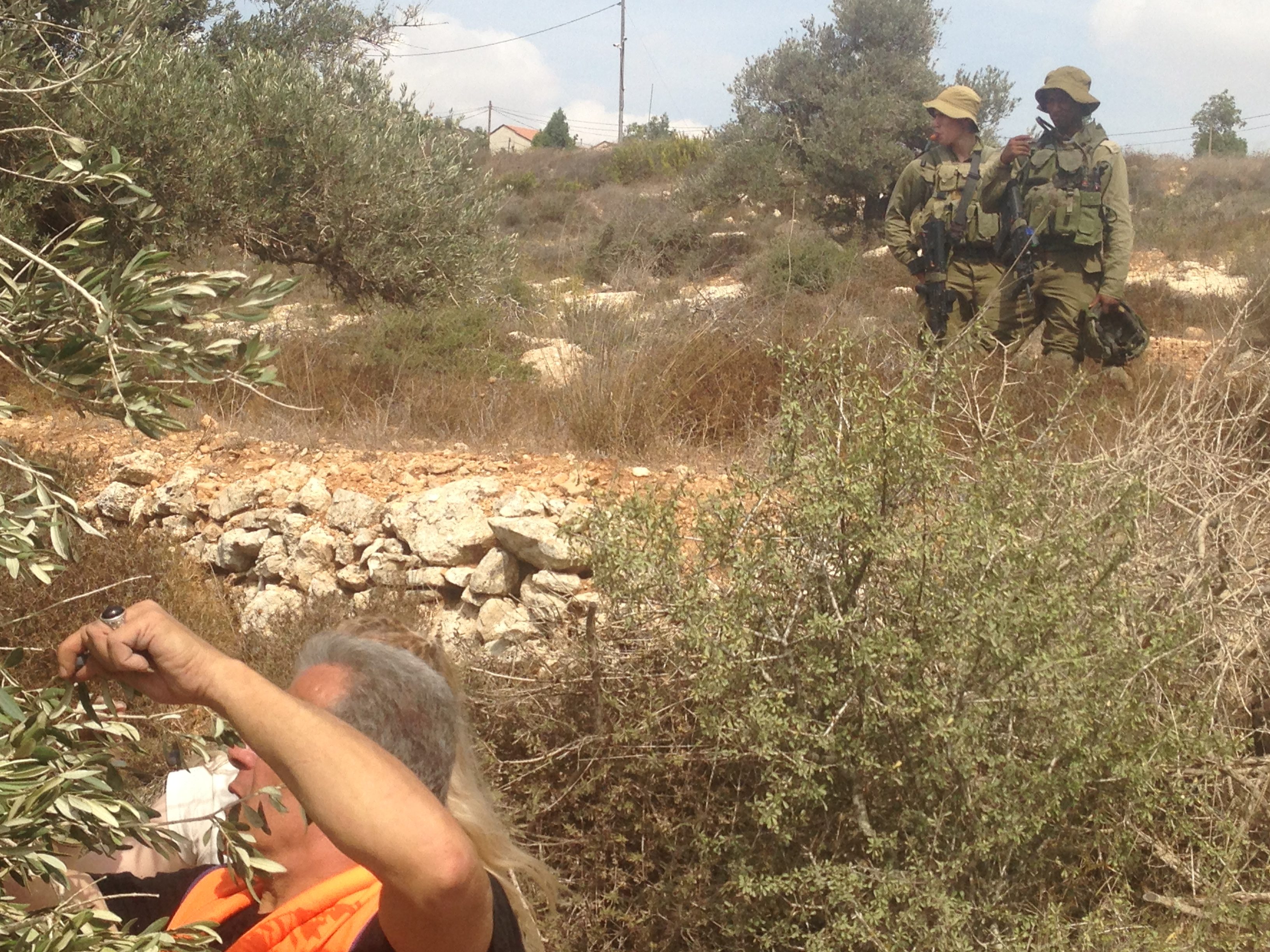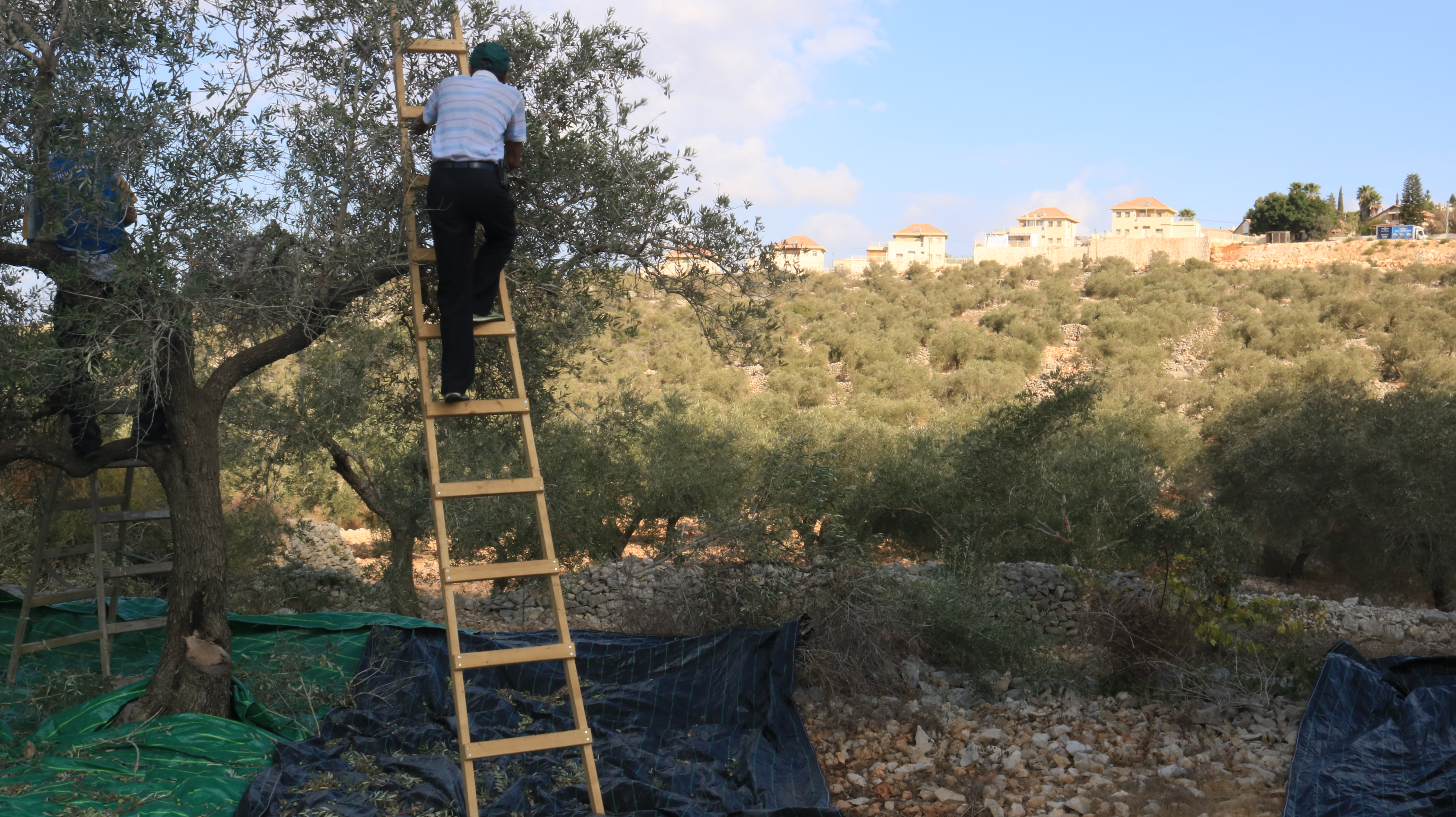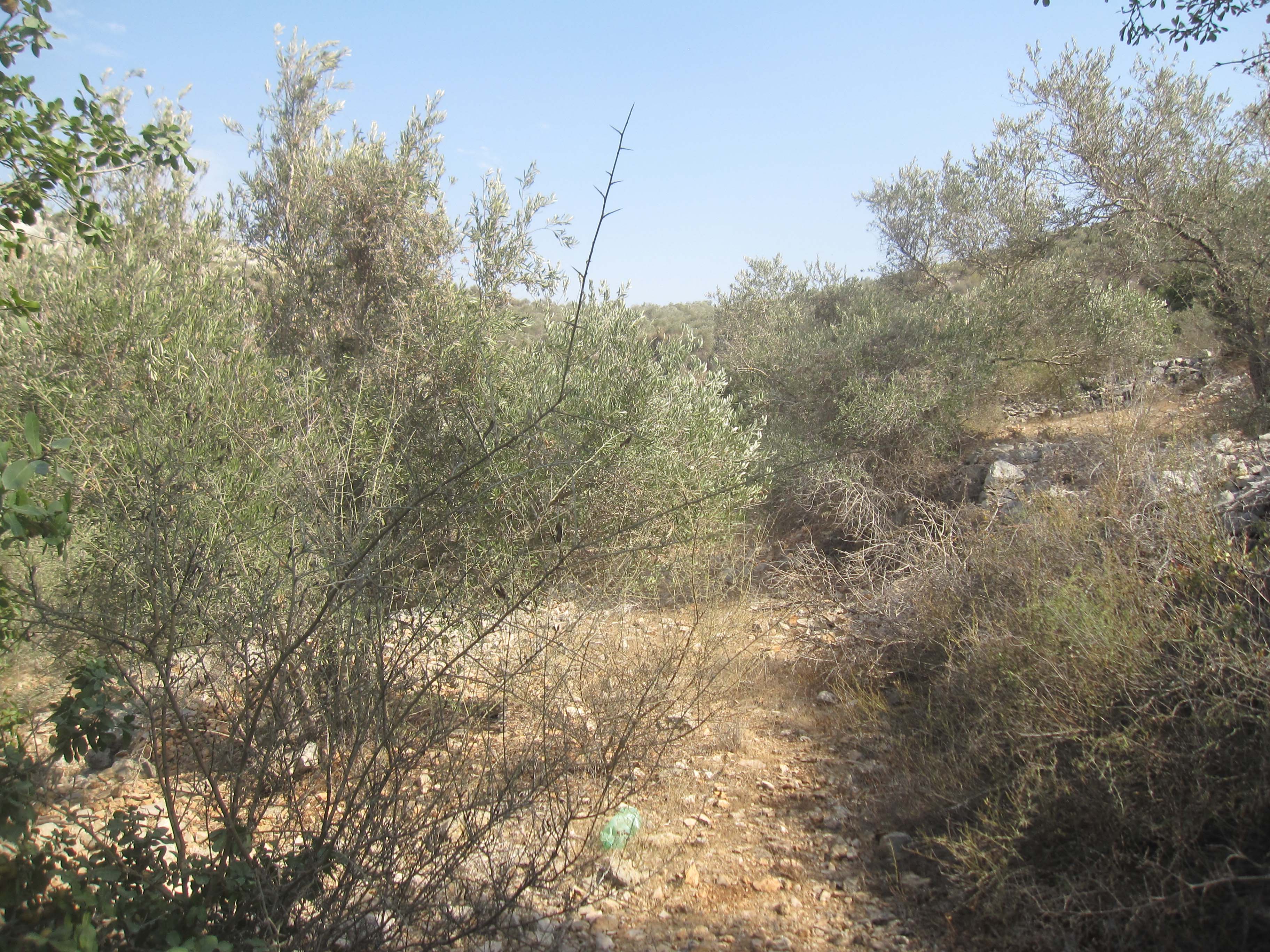Tag: Olive harvest
-
Video: Israeli soldiers, police harass olive pickers in As-Sawiya village
October 7, 2018 | International Solidarity Movement | As-Sawiya, Occupied Palestine A group of Israeli soldiers, one Israeli policeman, and one Israeli settler harassed a group of Palestinian and international olive pickers in As-Sawiya village yesterday, demanding identification and threatening to expel the harvesters from the area. Soon after the group began work,…
-
Call to action: Olive Harvest 2018 – Join ISM now!
International Solidarity Movement | Ramallah, occupied Palestine Tthe International Solidarity Movement (ISM) is issuing an urgent call for volunteers to join us for the 2018 Olive Harvest Campaign at the invitation of Palestinian communities. The olive tree is a national symbol for Palestinians. As thousands of olive trees have been bulldozed, uprooted and burned by Israeli settlers…
-
Olive harvest next to the illegal settlements in Bruqin
23rd October 2016 | International Solidarity Movement, Ramallah-team | Bruqin, occupied Palestine On October 21st, an ISM-team joined farmers in the village of Bruqin, Salfit district, for the olive harvest. The family’s fields are occupied by an illegal Israeli settlement and they are denied access to their land by the Israeli military except during the…



